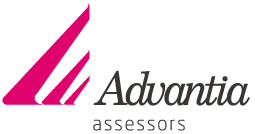El 1 de diciembre el parlamento andorrano aprobó la ley 42/2022, sobre la economía digital, el emprendimiento y la innovación. El objetivo de esta ley es proporcionar los medios que permitan desarrollar y fomentar nuevas oportunidades de negocio en el sector digital y de las nuevas tecnologías en Andorra. Pretende también favorecer las condiciones para que inversores locales y extranjeros puedan impulsar sus actividades, creando un marco legal fuerte, seguro y que genere confianza.
Tabla de contenidos:
- Regulación de espacios y equipamientos
Las empresas startups
Modalidades inmigración para favorecer la economía digital
El contrato de teletrabajo y la desconexión digital
La inversión extranjera en el 2021
Un paso adelante para la digitalización del país
Regulación de espacios y equipamientos
El texto legal regula una serie de instalaciones y áreas para acentuar nuevos proyectos relacionados con la economía digital.
El reglamento plantea aspectos, como la posibilidad de crear zonas económicas especiales dentro del territorio andorrano, donde las empresas se beneficiarán de ventajas competitivas. Regula la creación de entornos de pruebas controlados y sandboxs para promover el desarrollo de productos o servicios innovadores. Se incluyen también los living labs, laboratorios abiertos en los que se fomentará la participación de la administración pública, de particulares o de centros de investigación para crear soluciones a las necesidades detectadas en la población.
También establece un régimen jurídico para los espacios compartidos de trabajo y de vivienda, como los denominados coworking y coliving. Otro de los puntos que regula son las incubadoras, las aceleradoras y los clústeres que permitirán la mejora, el desarrollo y la inversión con colaboraciones entre diferentes instituciones y empresas.
Las empresas startups
La ley engloba a las startups dentro de las acciones para favorecer el financiamiento y la inversión de las iniciativas empresariales digitales. Decreta un marco jurídico específico para fomentar su creación y proteger a los inversores. Además, estipula el financiamiento participativo y nuevas formas de financiamiento para que los emprendedores puedan obtener el capital para sus proyectos.
Se ha creado una sección específica para este tipo de empresas en el Registro de Sociedades Mercantiles. La característica que tiene que cumplir es que sea una empresa o un modelo de negocio emergente basada en la innovación o en el incremento de productos y servicios que tienen la tecnología como eje.
Modalidades inmigración para favorecer la economía digital
Con el fin de adaptarse a las formas de trabajo deslocalizado y favorecer el impulso a la economía digital, la innovación y el emprendimiento, se crean nuevas figuras de residencia. Por este motivo ha sido necesario modificar la ley calificada de inmigración 9/2012.
• Los nómadas digitales
Ordena nuevas modalidades de residencia para personas que para llevar a cabo su actividad no requieren de una localización geográfica determinada. Son los que se conocen cómo nómadas digitales, personas que utilizan la tecnología, las telecomunicaciones y otras herramientas para desempeñar su ocupación. También regula las autorizaciones de residencia para los participantes en el programa de emprendedores que gestiona el ministerio de economía, bajo el nombre “visado emprendedor”.
De este modo, se flexibilizan las concesiones de autorización de inmigración de trabajo sin residencia para los trabajadores extranjeros que trabajan en empresa constituida en Andorra. El visado emprendedor no requiere acreditar un salario fijo superior a tres veces el salario mínimo vigente.
• Inversores extranjeros
En el caso de crear una empresa que fomente la economía digital, la innovación y el emprendimiento, las concesiones de autorización de residencia y trabajo por cuenta propia también son más flexibles. Los inversores extranjeros ya no tendrán que depositar el importe de 50.000 € a la AFA (Autoridad Financiera Andorrana) en el mismo momento de presentar la autorización de inmigración.
El contrato de teletrabajo y la desconexión digital regulados en la ley de economía digital
Otra de las cuestiones que aborda la ley es el régimen del contrato de trabajo a distancia o de teletrabajo. Mediante la modificación de la ley 31/2018, de relaciones laborales, se especifican las condiciones entre la empresa y el trabajador.
Asimismo, la modificación también introduce el derecho a la desconexión digital después del horario laboral.
La inversión extranjera en el 2021
Los datos recogen un cambio en los modelos de negocio que se han presentado para crear sociedades extranjeras en Andorra. El tipo de inversión que más ha crecido es el relacionado con los servicios, y más concretamente los que están relacionados con la digitalización y la innovación.
Es una buena noticia para el país, que se posiciona como un destino atractivo para llevar a cabo actividades económicas digitales. Además, va en línea con el objetivo que persigue el país en los últimos años para encontrar nuevas vías de diversificar la economía.
Cabe destacar que, en 2021, el número de solicitudes de inversión extranjera aprobadas crecieron el doble respecto al año anterior (en este incremento se recuperaron muchas solicitudes paralizadas en 2020 por la pandemia).
Consulta todos los datos sobre inversión extranjera del 2021 en nuestro artículo:
La inversión extranjera crece un año más en Andorra
Un paso adelante para la digitalización del país
La ley de economía digital se aprueba a finales de 2022 y culmina un camino que empezó casi dos años antes. Nace con la intención de adaptarse al ecosistema digital, cada vez más presente en el día a día de las empresas y de los emprendedores. Con esta ley se establece de un marco regulador para las nuevas formas de trabajo y para regular iniciativas empresariales que permitan a los inversores locales y extranjeros beneficiarse de la innovación en Andorra.
El objetivo que persigue el Principado en los últimos años es el de encontrar nuevos sectores para diversificar la economía.
Además, el país también cuenta con la ley de blockchain y activos digitales y la de e-sports, aprobadas en 2022 y 2021, respectivamente.
El país está avanzando mucho para crear un entorno favorable para promover la digitalización y la investigación. Junto a las ventajas fiscales que ofrece y su buena situación geográfica, estos cambios legislativos son puntos fuertes para seguir atrayendo talento e inversores extranjeros que desean sacar un buen rendimiento a sus inversiones.
Si estás deseando invertir en Andorra, en Advantia Assessors te asesoramos a la hora de hacer los trámites de inmigración y residencia en Andorra, así como en todas las etapas para abrir tu negocio.
No dudes de contactarcon nosotros.



